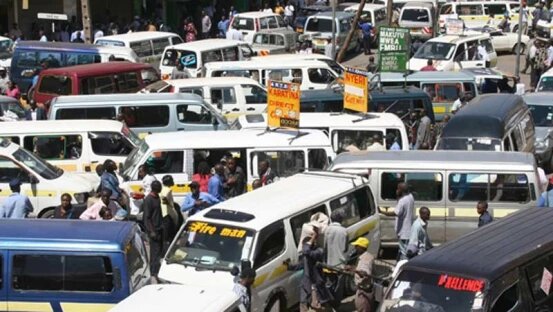How increase in transport tax will hit your pocket
By Noel.Wandera and John Otini, May 31, 2023The cost of transportation is set to rise if a proposal in the Finance Bill, 2023, which is seeking to increase advance tax levied on all vehicles registered for business is passed in Parliament.
Currently, the taxman levies a fee of Sh60 per passenger per month, or Sh2,400 annually, whichever is higher. The Finance Bill is, however, seeking to increase this to Sh100 per passenger per month or Sh5,000 per year, whichever is higher.
Vehicles targeted under this tax bracket include saloon and station wagon cars, mini-buses and coaches, basically all vehicles engaged in the business of ferrying passengers and commuters, including taxis, matatus and buses, all of which are critical to public transport despite being privately owned.
However, contrary to popular opinion, this proposal does not affect personal vehicles, but only those registered for business. It also does not apply to commercial vehicles used for agricultural purposes. Vehicles owned by public institutions, such as parastatals and colleges, are exempt from this tax as well.
For instance, if one operates a 14-seater matatu, the rate paid to Kenya Revenue Authority (KRA) will increase from the current Sh10,080 per year to Sh16,800. The current advance tax on trucks, vans, pick-up trucks, prime movers, trailers and lorries is Sh1,500 per tonne-load capacity per year or Sh2,400 per year, whichever is higher. If the Finance Bill is passed without amendments, this tax will be increased to Sh3,000 per tonne-load capacity per year, or Sh5,000, whichever is higher.
For instance, the current advance tax for a Mitsubishi Canter with a five-tonne capacity is Sh7,500. If Parliament approves the Finance Bill, 2023 without making any changes to this clause, this will double to Sh15,000.
“The increase in advance tax to commercial vehicles compounds the misery of businesses as this increases their cost of doing business. As much as the advance is treated as a tax credit, it may have impact to the taxpayer from a cash perspective,” says tax experts PWC in their Finance Bill 2023 alert.
The proposed effective date for this proposal is January 2024.
The knock-on effect of increasing transportation costs hurts consumer spending patterns by reducing disposable incomes. When transportation costs are high, this affects supply chain operations and raises the overall cost of production and distribution, not just in Kenya but also in the region given that Kenya is a transit hub for countries like Rwanda, Uganda, South Sudan and the Democratic Republic of Congo.
And in a country where the cost of transport is passed on to consumers through higher prices, this can dampen demand, impacting various sectors of the economy such as retail, manufacturing and the services.
According to the 2023 Economic Survey, the government “recognises the importance of transport and continues to set up policies and developments in an effort to ease mobility.”
The Economic Survey estimates that the value of output in the transportation sector between 2018 and 2022 recorded a 24.5 per cent rise from Sh2.3 trillion in 2021 to Sh2.9 trillion last year, with road transport being the highest contributor for the value of output at 77.5 per cent last year.
Any change in transport costs will, therefore, have a trickle down effect in the economy, triggering inflationary pressure on the cost of living as manufacturers of goods, transporters and service providers pass on the increased expenses to consumers.
Further, higher costs of transportation can lead to inefficient allocations, with a larger proportion of business incomes being eaten up transportation expenses, affecting overall economic growth and competitiveness.
The Finance Bill 2023 is perhaps the most contested in the history of Budget preparation at a time when the country is facing a high cost of living, with inflation averaging 9.2 per cent as at last month.
Fears abound that higher costs of doing business in the transport sector can discourage investors who could be deterred by the financial risks associated with high operating costs.
The Bill, if passed in Parliament, will also come amidst a significant increase in fuel prices that took effect from May 15 when the Energy, Petroleum and Regulatory Authority announced new pricing that raised the price of petrol in Nairobi by Sh3.40 to retail at Sh182.70 per litre.
The retail price of diesel also increased by Sh6.40 to retail at Sh168.40 while kerosene surged by Sh15.19 to retail at 161.13, further increasing the cost of living.
President William Ruto has defended the -government’s tax proposals that will, among others raise VAT on petrol to 16 per cent, saying it would increase revenue by Sh50 billion in addition to harmonising the VAT regime across all sectors and products.
